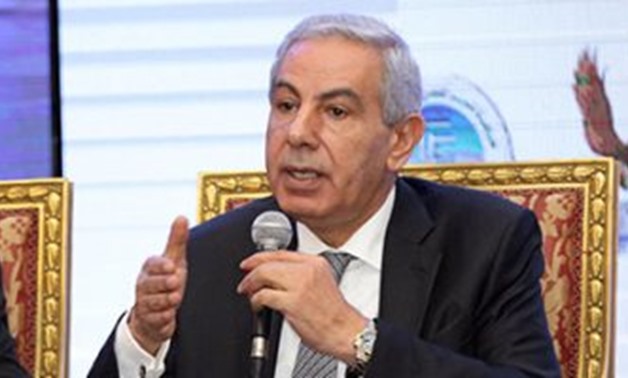
File – Industry Minister Tarek Kabil
CAIRO – 4 December 2017: Minister of Trade and Industry Tarek Kabil reviewed with Parliament’s Industrial Committee the efforts exerted by his ministry to develop the Egyptian industry and enhance foreign trade, an official statement said Sunday.
The minister announced that, during 2018, the ministry will open 22 industrial complexes, Al Robiky City for leather and Damietta Furniture City.
The ministry’s strategy is being accomplished at a fast pace, aiming to deepen industrial development and foreign trade until 2020, in line with the 2030 Strategy.
The industrial strategy includes several axes: enhancing industrial development; developing education and technical training; developing micro, small and medium-sized enterprises; and applying the principles of governance.
The strategy mainly aims to shift the business community from relying on trade to production and manufacturing, driving future economic development.
As a result, the Industry Ministry took a number of decisions to achieve the strategy’s goals. It issued the Industrial Permit Act, along with its executive regulations, with the aim of easing measures for obtaining licenses of industrial establishments. The act entails granting investors the needed approvals in no more than one month, instead of a period of almost two years under the old law, No. 83, 2002.
The ministry also launched a comprehensive map for industrial investment involving opportunities across several of the sector’s segments. These opportunities were defined according to the competitive characteristics of every governorate.
The investment map includes 4,136 opportunities in eight of the sector’s segments, including engineering, chemicals, food and fabrics.
The ministry has managed to offer 26 million square meters for industrial activities, Kabil revealed. The amount of industrial lands offered during 2016 was 11 million square meters, whereas another 15 million square meters will be available by end-2017. There is also a plan to offer around 34 million square meters during 2018.
Kabil added that the trade deficit balance declined by $10 billion in 2016; 80% of the decline was due to a decrease in imports and the rest was the result of an increase in exports. The 2017 trade balance deficit reduced at a value of $11 billion.
Comments
Leave a Comment